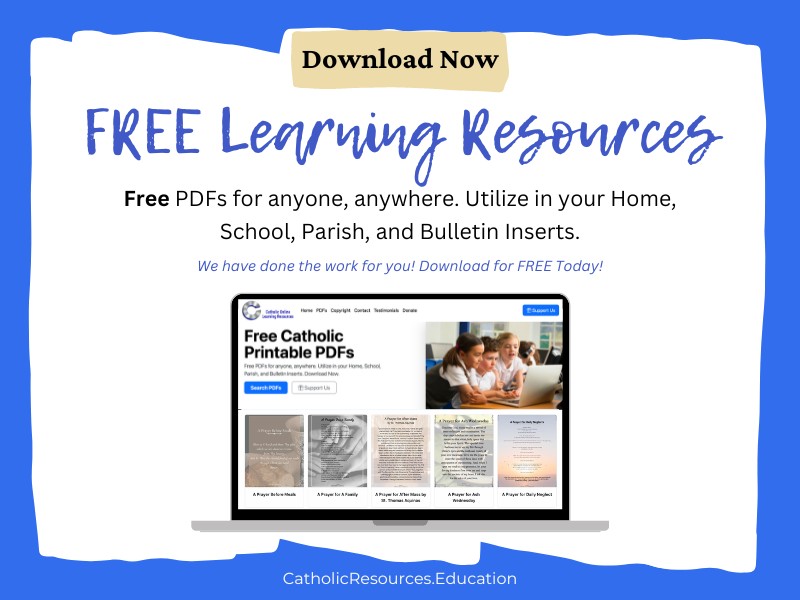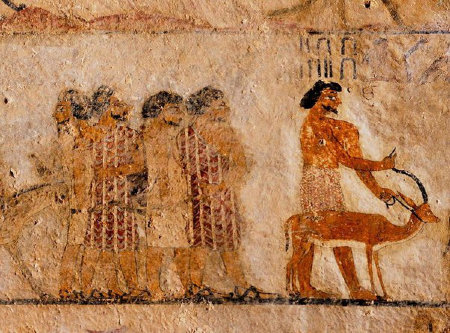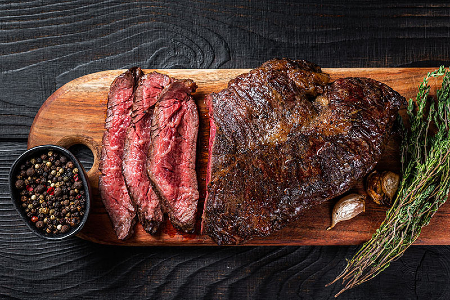We ask you, humbly: don't scroll away.
Hi readers, it seems you use Catholic Online a lot; that's great! It's a little awkward to ask, but we need your help. If you have already donated, we sincerely thank you. We're not salespeople, but we depend on donations averaging $14.76 and fewer than 1% of readers give. If you donate just $5.00, the price of your coffee, Catholic Online School could keep thriving. Thank you.Help Now >
How to Pick a Catholic Bible
FREE Catholic Classes
Choosing the right Bible matters. Here's our guide to choosing one that's right for you, or as a gift.

Here's a guide to choosing a Catholic Bible.
Highlights
4/13/2020 (4 years ago)
Published in Living Faith
Keywords: Catholic, Bible, pick, choose, scriptures, book, shopping
LOS ANGELES, CA (California Network) - Choosing a Bible can be fun if you know a few basic things.
The Bible is the world's most printed and read book of all time. In fact, the word Bible is based on the Latin word for "books" (biblia). The Bible contains the whole of sacred scripture, which makes it critically important to read and understand. To live without reading the Bible is like doing a complex job without reading the training manual. You'll find you're making dangerous guesses instead of knowing the right way to do the job!
Because the Bible is so important, it comes in many versions. Not only does it come in different languages, it comes in different translations. For example, a scholar might have a Bible that is translated as close to the original writings as possible. Such a Bible will contain a lot of "big words" with precise meanings, and unless a person has a deep vocabulary, it could be difficult to understand. Meanwhile, another translation might be intended for kids, or for people who are new to Christianity. The scriptures might be translated into a common language that's easy to understand. Some versions even use slang terms! There's a time and a place for all these versions, so let's explore the options.Â
1. Catholic, Protestant, or what?Â
It is important to know that not all Bibles are the same. There's a difference between Catholic and Protestant versions of the Bible; Catholic Bibles have seven more books in the Old Testament (46) compared to the Protestant (39). Some Protestant Bibles include these missing books, calling them the Apocrypha. If you see a Protestant Bible with the statement, "with Apocrypha," it means these books are included. They are often separated into their own section. You can also buy just the apocryphal books on their own, but these are Protestant publications. The apocryphal books are already included in every Catholic Bible.Â
The most common version of the Protestant Bible in English is the King James Version. If you enjoy the older English translation, this version can be fun to read, but the language is now archaic, and is similar to reading Shakespeare. The King James Version was originally commissioned by King James I of England in 1603. It was translated in such a way as to be more poetic, but this means the context of some verses could be lost. For a lay reader, this can result in a misunderstanding or confusion.Â
Various scholars and churches have since updated the King James Version to modern languages so it no longer reads like the original text.Â
For Catholics, the King James Bible, or any Protestant Bible is okay for occasional use, but there's no assurance that it is complete or free of error. When possible, it is recommended Catholics use an approved Catholic Bible.Â
2. Catholic Bibles come with a guarantee. Here's how to find it.
Catholic Bibles, and every official Catholic text for that matter, come with a statement that the text is free from error and is an official publication of the Church. These credentials are displayed inside the book, often on the colophon, which is a page that follows the title page and displays the publisher's information as well as the date and place of publication. In other words, you will find these credentials on one of the first few pages of the work.Â
The words to look for are, "Nihil Obstat," and "Imprimatur." These Latin terms mean there's nothing objectionable to the faith in the work, and the work is printed with the permission of a bishop.Â
These terms are a certain guarantee the publication is Catholic and suitable for instruction.Â
3. What kind of translation should I get?
It is important to consider the purpose of the Bible. Who will be reading it and why? Is it a gift for a child or someone new to the Church? How well can they read? Are they a catechism student, or a scholar studying the Bible in depth?Â
For the average Catholic, the local approved translation of the Bible is often suitable. In the United States, that translation is the New American Bible, which is published by the United States Conference of Catholic Bishops and is used in their official readings and publications. Fun Fact: the New American Bible draws on recent scholarship from the Dead Sea Scrolls. Other Bishops' conferences will use their own versions. If you're not sure which version is approved in your region, ask your parish priest, or search for the webpage of your local bishops' conference.Â
For a person who is studying the Bible in detail, a study Bible is an essential choice. Such Bibles come with notes so students can gain a deeper understanding as they read. One example is the Ignatius Catholic Study Bible (New Testament). Study Bibles are excellent for any confirmed Catholic who enjoys reading scriptures. The notes and information are incredibly useful to making sense out of the scriptures and will ensure the reader has an accurate understanding of what they are reading.Â
For children, there are many different versions. For older children who can read on their own, the Young Christian's First Bible is a great choice. It is simple and easy to read with plenty of illustrations to spark the imagination. This example is not an official Catholic publication, but it is still suitable for Catholic children who are encountering the scriptures for the first time. This particular Bible contains the Apocrypha.Â
For younger children, a story book is more appropriate. For them, the stories will help them learn about the people and events in Biblical history. It's a great way to ignite interest and build the foundation for learning more as they grow. Bible Stories for Catholic Children is an appropriate choice.Â
For teenagers, there's the Extreme Faith Bible. This is a non-Catholic version but it is suitable for teens and provides some in-depth discussion of topics of interest to teenagers.Â
For the Catholic family, the Catholic Family Bible is a large size, heirloom quality version suitable for a wedding present or any other family occasion.Â
4. Explore to find more options.Â
There are many more options than listed above. Catholic Online Shopping has a wide selection of Bibles. If you want large print, or something compact, you can find them in the store. New versions are added over time.Â
In addition to Bibles, Catholic Online Shopping has a wide variety of Catholic gifts for every home. The store also has frequent sales on various items, so bookmark Catholic Online Shopping and check back often to get some great deals.Â
Join the Movement
When you sign up below, you don't just join an email list - you're joining an entire movement for Free world class Catholic education.
-

-
Mysteries of the Rosary
-
St. Faustina Kowalska
-
Litany of the Blessed Virgin Mary
-
Saint of the Day for Wednesday, Oct 4th, 2023
-
Popular Saints
-
St. Francis of Assisi
-
Bible
-
Female / Women Saints
-
7 Morning Prayers you need to get your day started with God
-
Litany of the Blessed Virgin Mary
Biblical Lost Alphabet Traced Back to Ancient Canaanite Civilization
-

What are the Health Benefits of Grass-Fed Beef for Your Body and Mind?
-

Rise Above Poverty is Empowering Children and Families Through Education and Compassion
-
Artists and Leaders Rally to Preserve the Traditional Latin Mass
-
Republicans Demand Answers Over Army Training Slide Labeling Pro-Life Groups as Terrorist Threats
Daily Catholic
 Daily Readings for Wednesday, July 24, 2024
Daily Readings for Wednesday, July 24, 2024 St. John Boste: Saint of the Day for Wednesday, July 24, 2024
St. John Boste: Saint of the Day for Wednesday, July 24, 2024 Prayer for Travelers: Prayer of the Day for Wednesday, July 24, 2024
Prayer for Travelers: Prayer of the Day for Wednesday, July 24, 2024- Daily Readings for Tuesday, July 23, 2024
- St. Bridget of Sweden: Saint of the Day for Tuesday, July 23, 2024
- A Child's Prayer to Mary: Prayer of the Day for Tuesday, July 23, 2024
![]()
Copyright 2024 Catholic Online. All materials contained on this site, whether written, audible or visual are the exclusive property of Catholic Online and are protected under U.S. and International copyright laws, © Copyright 2024 Catholic Online. Any unauthorized use, without prior written consent of Catholic Online is strictly forbidden and prohibited.
Catholic Online is a Project of Your Catholic Voice Foundation, a Not-for-Profit Corporation. Your Catholic Voice Foundation has been granted a recognition of tax exemption under Section 501(c)(3) of the Internal Revenue Code. Federal Tax Identification Number: 81-0596847. Your gift is tax-deductible as allowed by law.











 Daily Readings for Wednesday, July 24, 2024
Daily Readings for Wednesday, July 24, 2024 St. John Boste: Saint of the Day for Wednesday, July 24, 2024
St. John Boste: Saint of the Day for Wednesday, July 24, 2024 Prayer for Travelers: Prayer of the Day for Wednesday, July 24, 2024
Prayer for Travelers: Prayer of the Day for Wednesday, July 24, 2024

